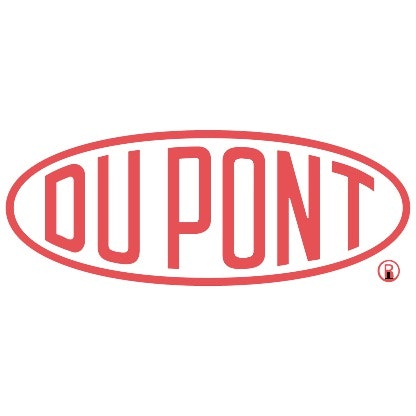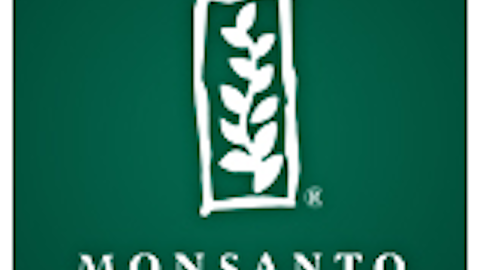I can’t quite claim to have monitored E I Du Pont De Nemours And Co (NYSE:DD) since its founding back in 1802 as a gunpowder manufacturer. In the past few years, however, the big Delaware company has initiated a somewhat quiet restructuring that promises to make it far less cyclical and more compelling for investors.
Steadily buying and selling
In early 2011, for instance, the company acquired Danisco, a global enzyme and specialty food ingredients company based in Denmark. For $6.3 billion, including the assumption of debt, E I Du Pont De Nemours And Co (NYSE:DD) added a unit that, as is the case with its own fast-expanding agricultural unit, will be driven in the years and decades to come by our planet’s expected dramatic population growth.

Conversely, in 2012 the company accepted nearly $5 million from private equity’s Carlyle Group LP (NASDAQ:CG) for its car paint unit. The deal turned out to be one of more than a dozen salted away by Carlyle during the year.
Those deals, along with other trends at the company, indicate that the significant restructuring largely initiated during the reign of the company’s competent CEO, Ellen Kuhlman, is likely to continue and perhaps expand. As was manifested strongly in the second quarter, E I Du Pont De Nemours And Co (NYSE:DD) continues to follow in the footsteps of its rival Monsanto Company (NYSE:MON) in emphasizing agriculture and related areas (read Danisco’s food and enzyme products), while shedding its former base in more cyclical chemicals operations.
The new backbone
At was expected, DuPont’s ag unit — largely bioengineered seeds and pesticides — led the way in the quarter, with revenues that constituted 37% of the total and expanded by 7%. But as I noted at the time, the performance chemicals segment saw its revenue dip by 15% and its operating earnings plunge by 56%.
Kuhlman et al. noted unequivocally at release time that they’d be better off without performance chemicals, which was hit hardest by excessive capacity and low prices for titanium dioxide, a whitening agent used in a host of products. A figurative “for sale” sign has clearly been placed in front of the unit, with the notion that it’d fetch about $10 billion, potentially from one of Carlyle Group LP (NASDAQ:CG)’s private equity brethren.
It’s noteworthy, however, that E I Du Pont De Nemours And Co (NYSE:DD)’s isn’t the only titanium dioxide unit on the market. Huntsman Corporation (NYSE:HUN), which also manufactures the agent, will similarly be vying for buyers’ attention for its own operation.
A brightening in darkest Africa
Back on the debit side of the ledger, soon after announcing its second-quarter results, DuPont told us that, following a three-year struggle, it had completed the acquisition of South Africa’s Pannar Seed. The purchase, which was first announced in September 2010, obviously will further expand agriculture’s base at the company. And with it (and assuming that performance chemicals is jettisoned), I’m projecting that the three-segment agriculture- and food-related group will easily account for as much as 75% of total revenues by the end of 2015.
Let’s look at what all this means to likely sources of the company’s revenues in the not-too-distant future. In the most recent quarter, agriculture and its related segments accounted for nearly 49% of E I Du Pont De Nemours And Co (NYSE:DD)’s total sales. Where I went to school, that’s about half. But had performance chemicals been unloaded before June 30, agriculture, biosciences, and nutrition would have been responsible for nearly 60% of the total.
Add in Pennar’s contribution — which, as of now, remains somewhat hazy — and the percentage on an ex post facto basis would obviously have been ratcheted upward. DuPont is promising to invest in a technology hub in South Africa, so the acquisition should become steadily more meaningful. That research effort will benefit work in corn, sunflower, grain sorghum, forage sorghum, wheat, dry beans, and soybeans. The benefits will clearly be felt throughout Africa and beyond.
What’s this about?
With all this promising activity occurring at DuPont, I’m eager to learn what activist investor Nelson Peltz desires to effect at the company. It appears that Peltz’s Trian Fund Management has socked away about 21 million shares of the company’s stock, or approximately 2.2% of the total. If he’s doing so through disaffection, it’s difficult to suggest what Kullman and her minions might have done differently to benefit DuPont of late.
Foolish bottom line
In any event, in my rarely tentative opinion, I’m convinced that few U.S. corporations are undergoing a positive metamorphosis to the extent of the one being implemented at DuPont. It’s bringing about a set of alterations that I believe will stand the company in relatively solid stead, should some of the economic perils I’m seeing on the horizon reach fruition. I’d therefore suggest that Foolish investors join me in monitoring this venerable — albeit fast-changing company.
The article DuPont’s Really Being Strengthened by Going to Seed originally appeared on Fool.com and is written by David Smith.
Fool contributor David Smith and The Motley Fool have no position in any of the stocks mentioned.
Copyright © 1995 – 2013 The Motley Fool, LLC. All rights reserved. The Motley Fool has a disclosure policy.




